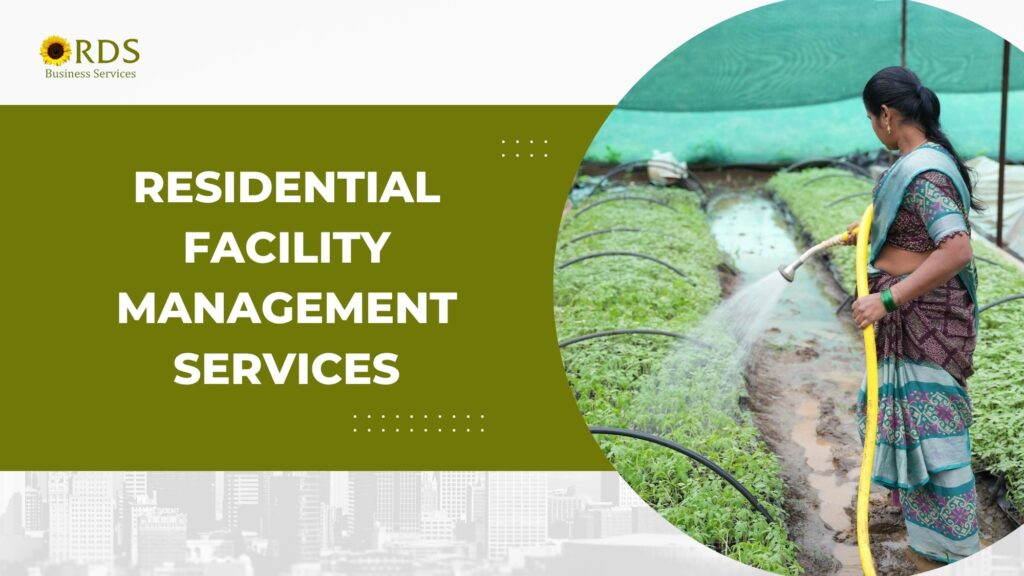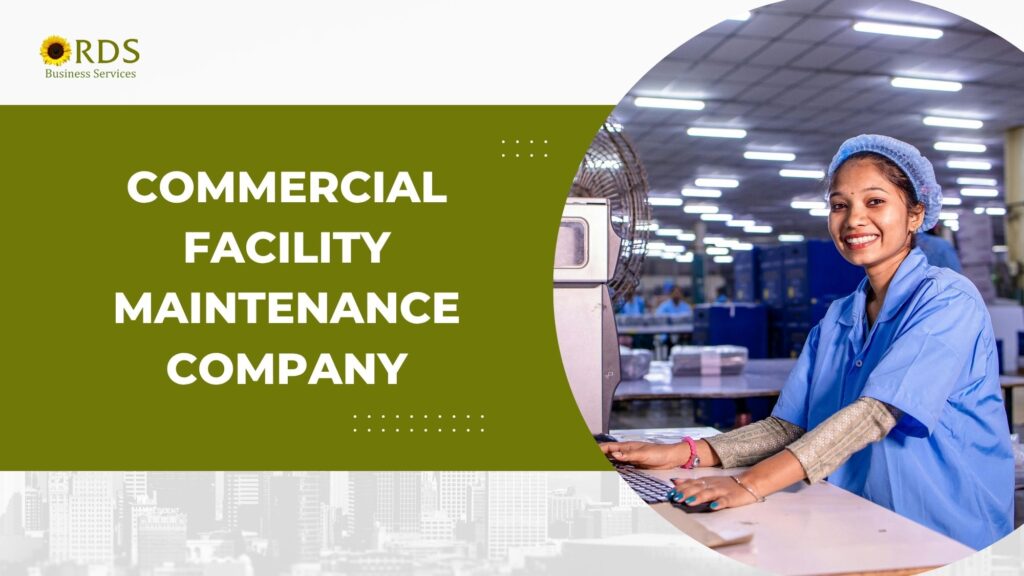
Table of Contents
Managing the facilities of an office space is crucial for creating a productive and efficient work environment. Office facility management involves overseeing the day-to-day operations of the office building and ensuring that everything runs smoothly. In this article, we will explore the definition of Infrastructure Management, its importance for office facilities, how to implement an effective Infrastructure Management system, the role of building maintenance, and the future of facility management with the integration of technology.
What is Office Facility Management?
Role of a Facility Manager
Facility management refers to the Operations of the physical assets and infrastructure of a building. It encompasses a wide range of tasks and responsibilities, including maintenance, security, space management, and occupant satisfaction. A facility manager is responsible for overseeing these functions and ensuring that the work space is well-maintained and provides a conducive work environment for employees.
Benefits of Implementing Facility Management
Implementing a facility management company in Chennai in an office facility offers numerous benefits. Firstly, it helps improve efficiency and productivity by streamlining processes and optimizing resources. A well-maintained work area also enhances the overall employee experience, leading to increased job satisfaction and employee morale. Additionally, Facility Operations allows for cost savings and budget optimization by identifying areas for improvement and implementing cost-effective solutions.
Common Challenges Faced in Facility Management
While facility management services companies in Chennai are important for office spaces, it does come with their fair share of challenges. One common challenge is the need to prioritize and balance different aspects of facility administration, such as maintenance, security, and space management. Another challenge is the constant need to stay up to date with evolving regulations and compliance requirements. Additionally, managing a large workspace with multiple facilities and occupants can be complex and require efficient planning and coordination.
Why is Facility Management Important for Office Spaces?
Improving Efficiency and Productivity
Efficiency and productivity are key to the success of any organization. By implementing effective Facilities Administration practices, Businesses can optimize their resources, streamline processes, and eliminate inefficiencies. This results in improved productivity and ensures that employees have access to the necessary tools and resources they need to perform their tasks efficiently.
Enhancing Employee Experience
The work environment plays a significant role in employee satisfaction and overall experience. Well-maintained and properly managed workplaces create a positive workplace that fosters creativity, collaboration, and employee well-being. Facilities Administration encompasses various aspects such as comfortable office layouts, effective communication systems, and amenities that cater to the needs of employees. By prioritizing the employee experience, building operations contributes to higher job satisfaction and employee retention.
Cost Savings and Budget Optimization
Effective Facility Operations can lead to significant cost savings and budget optimization. By regularly assessing and evaluating facility needs, managers can identify areas for improvement and implement cost-effective solutions. For example, optimizing energy usage, implementing preventive maintenance strategies, and utilizing technology to automate processes can all contribute to lower operational costs. This allows organizations to allocate their budgets more efficiently and invest in areas that drive growth and innovation.
Read: Boost Workplace Hygiene with Professional Commercial Cleaning Services in Chennai
How to Implement an Effective Facility Management System?
Identifying and Assessing Facility Needs
Before implementing a Facilities Administration system, it is essential to identify and assess the specific needs of the office space. This includes understanding the functionalities required, space requirements, and the expected level of service. By conducting a comprehensive assessment, managers can tailor the Facility Operations system to meet the unique needs of the organization.
Developing a Comprehensive Facility Management Plan
A well-developed Facilities Administration plan serves as a roadmap for managing the office environment effectively. It outlines the objectives, strategies, and action plans to be implemented. The plan should cover various aspects such as maintenance schedules, security protocols, emergency response procedures, and space utilization strategies. It is important to involve key stakeholders and department heads in the planning process to ensure a comprehensive and integrated approach.
Implementing Facility Management Technologies
The integration of technology is revolutionizing Infrastructure Management. Facility management software, such as Computer-Aided Facility Management (CAFM) systems, provides organizations with a comprehensive platform for managing various facility-related tasks. These technologies help streamline processes, automate routine tasks, and provide real-time data for informed decision-making. Implementing such technologies can significantly enhance the efficiency and effectiveness of facility management services in Chennai.
Should You Outsource Facility Management?
Benefits of Outsourcing Facility Management
Outsourcing facility management can offer several benefits to organizations. Firstly, it allows organizations to focus on their core business functions while leaving the Building Operations responsibilities to experts. Outsourcing also provides access to specialized knowledge and expertise that may not be available in-house. Additionally, outsourcing Facilities Administration can lead to cost savings by eliminating the need to invest in infrastructure, training, and hiring additional staff.
Considerations before Outsourcing
Before deciding to outsource Facilities Administration, organizations need to consider several factors. These include assessing the level of control and oversight required, evaluating the risks associated with outsourcing, and understanding the financial implications. It is essential to thoroughly research potential Facilities Administration providers, review their track record, and ensure they align with the organization’s goals and values.
Choosing the Right Facility Management Provider
Choosing the right Building Operations provider is crucial for a successful outsourcing partnership. Organizations should consider factors such as the provider’s experience, expertise in the industry, the range of services offered, and their track record in delivering quality results. It is advisable to conduct thorough due diligence, seek recommendations, and evaluate proposals in order to make an informed decision.
Read: 10 Essential Facility Management Services That Will Transform Your Business
The Role of Building Maintenance in Facility Management
Understanding the Importance of Regular Upkeep
Building maintenance plays a critical role in Building Operations. Regular upkeep and maintenance ensure that the office building is in good condition, create a safe working environment, and prevent the occurrence of major issues and breakdowns. Routine maintenance tasks include HVAC system maintenance, plumbing checks, electrical inspections, and general repairs. By prioritizing building maintenance, facility managers can address minor issues before they escalate and optimize the performance and longevity of the building.
Ensuring Compliance with Safety and Environmental Regulations
Compliance with safety and environmental regulations is paramount in Facilities Administration. Facility managers need to stay up to date with the relevant regulations and ensure that the office space meets all necessary requirements. This includes implementing fire safety measures, maintaining appropriate levels of indoor air quality, and adhering to waste management guidelines. By ensuring compliance, facility managers create a safe and healthy work environment for occupants while minimizing legal and environmental risks.
Maintenance Strategies for Optimal Building Performance
Implementing proactive maintenance strategies is essential for optimal building performance. This includes conducting regular inspections, creating a preventive maintenance schedule, and using data-driven approaches to identify areas that need improvement. By adopting an integrated approach to maintenance, facility managers can increase the lifespan of assets, minimize downtime, and improve overall building performance.
The Future of Facility Management: Embracing Technology
Trends in Facility Management Technology
The integration of technology is reshaping the future of Building Operations.
Key trends include the use of Internet of Things (IoT) devices for real-time monitoring, cloud-based facility management software, and predictive analytics for maintenance. These technologies provide facility managers with valuable insights, automate processes, and enable data-driven decision-making.
Read: Integrated Facility Management for Enterprises: Benefits, Trends, and Insights
Benefits of Adopting Facility Management Software
The adoption of Infrastructure Management software, such as Integrated Workplace Management Systems (IWMS) and Computer-Aided Facility Management (CAFM) software, offers numerous benefits. These software solutions centralize data, automate workflows, and provide real-time visibility into various Property Management aspects. Facility managers can optimize space utilization, track assets, and generate comprehensive reports for informed decision-making.
Maximizing Workspace Occupancy with Smart Management Systems
Smart management systems are revolutionizing workspace occupancy. These systems incorporate technologies such as sensors, occupancy tracking, and reservation systems to optimize space utilization. Facility managers can analyze data on workspace usage patterns, identify underutilized areas, and implement strategies to maximize occupancy. This leads to cost savings, improves collaboration, and creates a flexible and agile work environment.
Key Elements of Office Facility Management That Boost Workplace Productivity and Efficiency
| Facility Management Element | Description | Impact on Productivity |
| Space Optimization | Strategic planning of office layouts and floor space utilization | Maximizes functional space, supports team collaboration, and reduces clutter |
| Preventive Maintenance | Regular servicing of HVAC, plumbing, and electrical systems | Ensures business continuity and minimizes costly downtime |
| Cleanliness & Hygiene | Comprehensive cleaning and sanitation routines | Enhances employee well-being and reduces health-related absences |
| Security & Access Control | Office facilities management systems for surveillance and access control | Creates a safe environment, improving focus and staff confidence |
| Energy Efficiency Management | Smart energy systems to monitor and reduce power consumption | Lowers operational costs and aligns with green office initiatives |
| Vendor & Asset Management | Coordinated management of service providers and office assets | Increases service reliability and operational efficiency |
| Compliance & Risk Mitigation | Adherence to regulatory, safety, and legal standards | Minimizes legal risks and supports a compliant workplace |
| Technology-Driven Facility Management | Use of CAFM and CMMS for efficient office facility management operations | Streamlines tasks, tracks assets, and improves decision-making |
| Ergonomics & Workspace Design | Incorporation of ergonomic furniture and employee-centric design elements | Boosts comfort, focus, and long-term employee retention |
| Emergency Preparedness | Emergency drills, evacuation plans, and safety protocols | Builds resilience and ensures employee safety in unexpected situations |
RDS Business Services: Your Partner in Expert Infrastructure Management
In conclusion, effective office facility management is fundamental to creating a productive, efficient, and safe workplace. It encompasses a wide range of responsibilities, from maintenance and security to space optimization and employee well-being. As we’ve explored in this comprehensive article, the role of Infrastructure Management is paramount in enhancing efficiency, improving the employee experience, and optimizing budget allocation.
For businesses seeking expert Infrastructure Management services, RDS Business Services emerges as a reliable partner. With a proven track record, extensive industry knowledge, and a commitment to excellence, RDS Business Services offers the expertise required to navigate the complexities of Property Management successfully. Our dedication to staying updated with industry trends and embracing cutting-edge technologies ensures that clients receive tailored solutions that cater to their unique needs. By choosing RDS Business Services, organizations can tap into the complete potential of their office spaces, fostering an environment that promotes both success and innovation.







